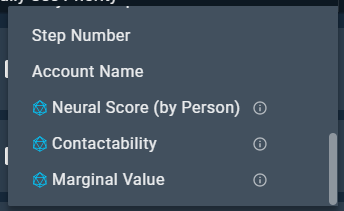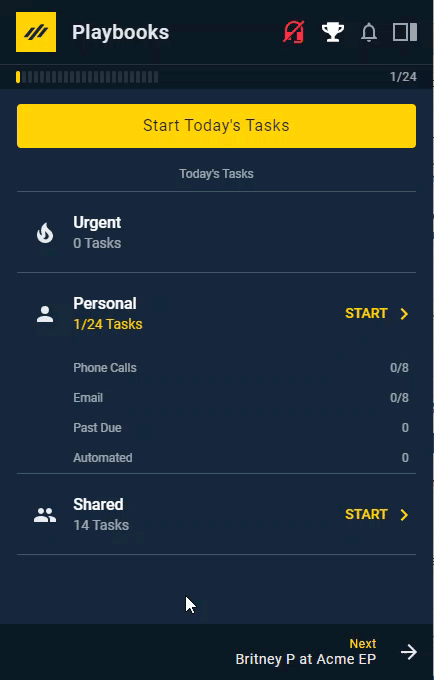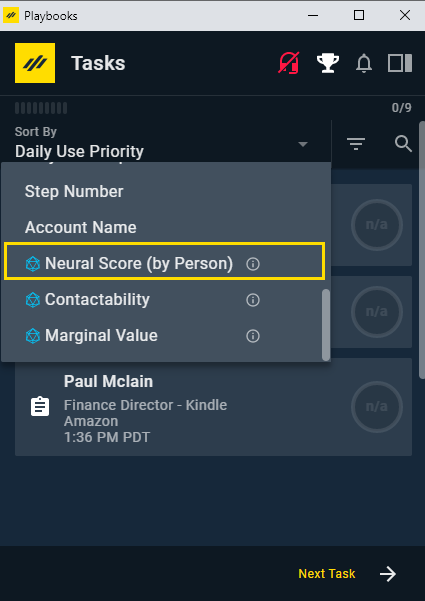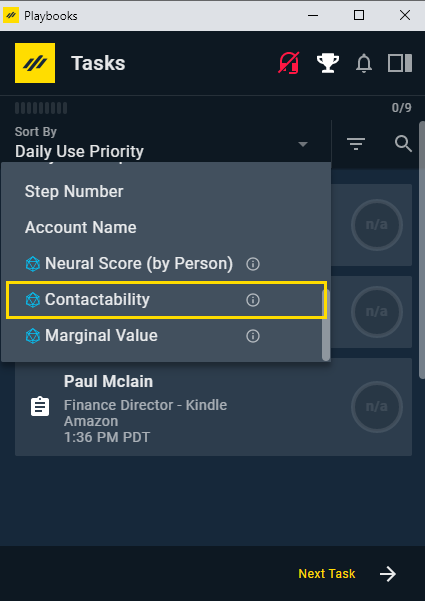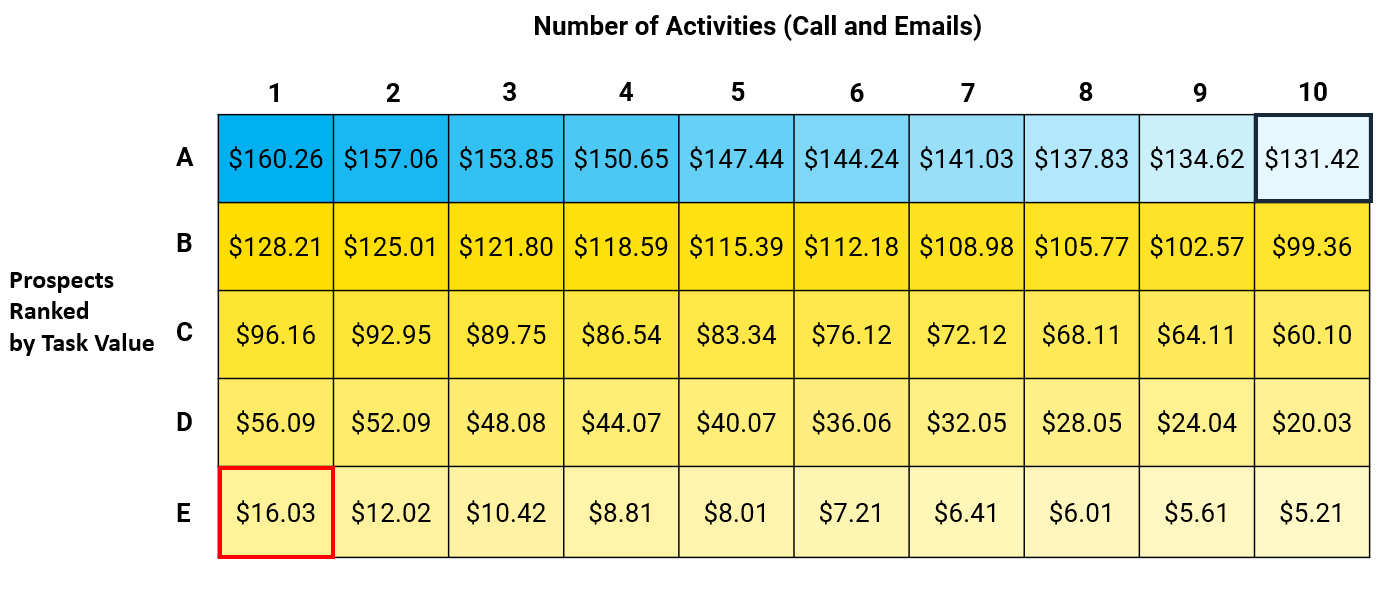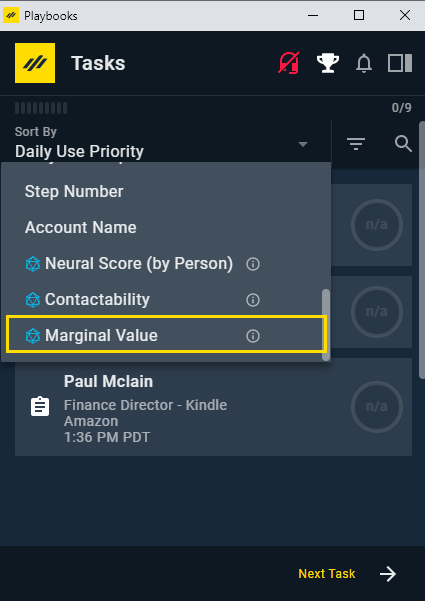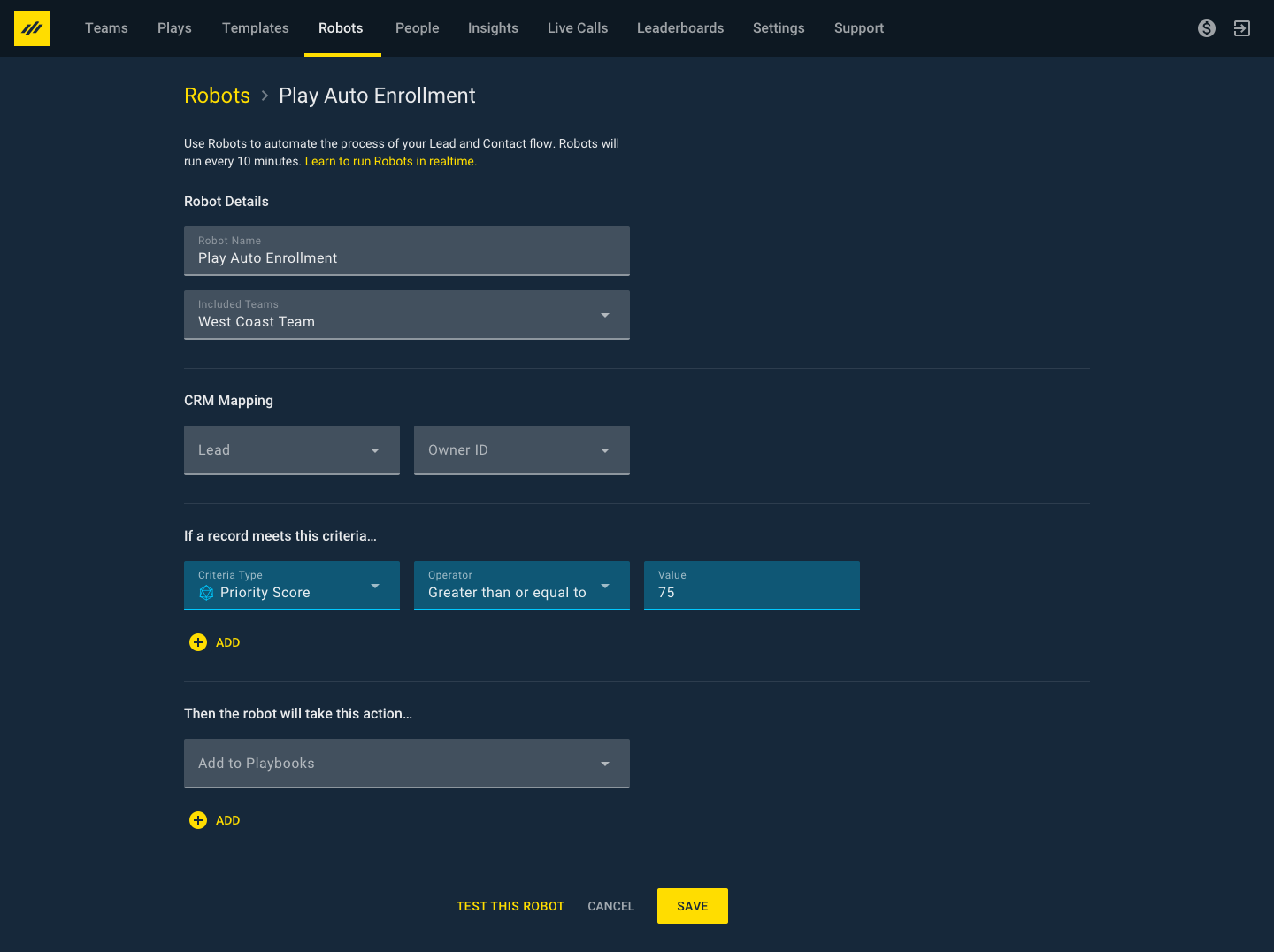AI Prioritization
How AI Prioritization works and how to use it
Prioritize your daily sales tasks by the accounts, people, and opportunities most likely to lead to accelerated revenue growth. These predictions enrich CRM data with Buyer Intelligence to determine customer behavior. Priority Scoring helps you create the best strategy to engage buyers by prioritizing the right people or accounts to contact. Improve your overall sales process by making small improvements in multiple areas to drive huge growth.
How to Leverage Prioritization
If you have all tasks rated as equal, you risk spending time on prospects that aren’t likely to close a deal, might not be reachable, or potentially return a lower investment. By sorting your prospects by Neural Score, Contactability, or Marginal Value you’ll spend more time working on the best tasks. Using these sorts helps narrow down which contacts to focus on after pulling them into Playbooks from your CRM.
AI Prioritization with Collective Data works best if:
A Rep has more work than they have time to do the work.
For example, a rep has 100 tasks to complete today, but only has time to complete 75. This would qualify as a good opportunity to use Priority Scoring, especially if this occurs regularly.
Basic CRM fields on leads and contacts are populated and kept current.
- Lead Object: Lead Converted, Lead Source, City, State, Industry, Title, Email fields, and Phone fields.
- Contact Object: Industry, Title, Annual Revenue, Billing City, Billing State, Lead Source, Account Source, Email fields, and Phone fields.
- Account Object: Account Source, Industry, Annual Revenue, Billing City, Billing State, Ownership, Phone, SIC Code, and Website.
- Opportunity Object: Account Source, Industry, Annual Revenue, Billing City, Billing State, Amount, Open Activity, Lead Source, and Type.
- Opportunity Contact Role: Contact ID, Role, and Isprimary.
Reps follow the model recommendations most of the time.
- Reps sort their task list by Scores.
- Managers leverage Robots for auto-enrollment using scores (to be released)
- Works even better with Shared records turned on
Neural Score
Neural Score sorts prospects by how likely they are to result in a converted or closed deal. This is the default sort option Playbooks will use to sort records, putting those most likely to close at the top of today’s tasks. Neural Score models consider things like title, lead source, known Buyer Intelligence data gathered from other contact attempts, and other demographic, and firmographic data.
To Filter by Neural Score
- Click Menu.
- Click Tasks.
- Click Filter.
- Change sort option to Neural Score.
- Click Apply.
- Click Next.
Contactability
It can be frustrating to spend time reaching out to a contact only to be met with silence. Contactability sorts prospects by how contactable a person is compared to others. Playbooks calculates Contactability by analyzing data from previous interaction attempts. Has this person been called recently, did they pick up or answer, or have they ever answered? These details are factored with other demographic and firmographic information to give the contact their Contactability score.
To Filter by Contactability
- Click Menu.
- Click Tasks.
- Click Filter.
- Change sort option to Contactability.
- Click Apply.
- Click Next.
Marginal Value
Marginal Value calculates the estimated value for prospective sales activities. Prospects with higher values are likely to yield more revenue than those with lower scores. Identifying the Marginal Value of prospects allows reps to identify whether it’s more advantageous to follow up with an existing highly rated lead or start pursuing a new highly rated prospect. It can also determine if you should work with a new low rated prospect or an existing but potentially exhausted contact.
Marginal Value determines if reps should contact a high value contact for the tenth time or a low value contact for the first time. Using a combination of sales prospects scoring, activity tacking, and outcome data, Marginal Value sorts prospects so the rep is always completing the next best action.
Sorting prospects by this value allows reps to prioritize activities so the more advantageous ones are the first ones displayed in Playbooks.
To Filter by Marginal Value
- Click Menu.
- Click Tasks.
- Click Filter.
- Change sort option to Marginal Value.
- Click Apply.
- Click Next.
Using AI Prioritization with Robots
AI Prioritization can be paired with Robots to make the tasks in Playbooks the most effective ones. Priority Scoring with Robots is the best way to automatically select the best records from your CRM. You can create a Robot to automatically enroll records that have a Neural Score above a certain threshold into Plays. You can also create Robots to remove records that have fallen below a certain score from Playbooks. Contactability can also be paired with Robots to maximize records that have a high likelihood of being reached. Currently, Marginal Value is not available to be built into Robots. For more information on creating Robots, read the Robot article series in Help Center or Take the Play Maker Course.
Who Has Access
Starting in October 2020, all Playbooks customers will have access to the baseline Conversion (Neural Score) and baseline Contactability models. XANT can create custom Conversion, Contactability, and Marginal Value models, unique to a customer’s CRM data. Talk to your Customer Success Manager about licensing these features.

